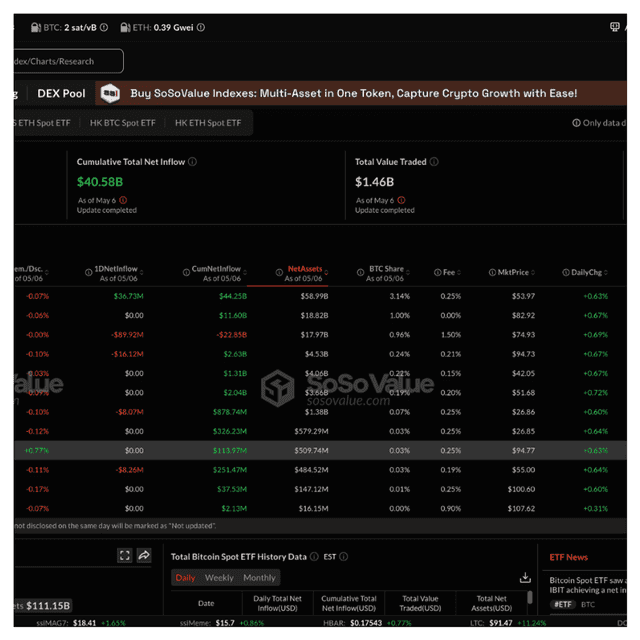2025-04-28 19:38
BLOCKMEDIA

Image source: Block Media
# South Korea’s Crypto Market Sees Intensified Exchange Competition Amid Surging Growth in Retail Investors
South Korea’s digital asset market is evolving rapidly, with an investor base now exceeding 16 million. This surge has intensified competition among local cryptocurrency exchanges. Bithumb is launching aggressive marketing and partnership strategies to challenge Upbit’s dominance, while Upbit is actively defending its market leadership. Nonetheless, both exchanges face the critical challenge of over-reliance on transaction fees for revenue.
# Revenue and Market Share Analysis: Upbit and Bithumb
Data from the Financial Supervisory Service's electronic disclosure system reveals that Upbit and Bithumb recorded operating revenues of KRW 1.73 trillion and KRW 496.3 billion, respectively, for 2022. Notably, Bithumb achieved a remarkable 3.7-fold increase from KRW 135.8 billion in the previous year, primarily due to aggressive offline marketing tactics. These strategies included partnerships with convenience stores, coffee shops, and bakeries, integrating daily spending with brand visibility.
In 2022, Bithumb invested KRW 163.7 billion in promotional expenses and KRW 28.5 billion in advertising, marking respective increases of over 16x and 5x year-on-year. These expenditures were aimed at attracting new users and boosting market share.
# Upbit’s Market Share Defense Amid Bithumb’s Aggressiveness
Bithumb’s marketing initiatives are reshaping the market. As of October 28, CoinGecko reports Upbit holds about 74% of the South Korean cryptocurrency market share, while Bithumb accounts for 24%. This marks a significant gain for Bithumb, considering Upbit’s peak share of 90% in 2023. Bithumb’s double fee waiver strategy since October 2022 led to a 32% increase in daily average users.
In response, Upbit increased its marketing budget from KRW 20.6 billion in 2023 to KRW 25 billion in 2022. Upbit is also leveraging cross-industry partnerships, recently collaborating with the fashion platform Musinsa to offer Bitcoin (BTC) gift certificates, attracting new customers. A Dunamu spokesperson stated, “This campaign aims to provide diversified brand experiences through collaborative marketing with companies in various industries, such as fashion. We plan to expand partnerships beyond our core business.”
# Persistent Reliance on Fees and the Push for Diversified Revenue Models
Despite intensified marketing efforts and market share shifts, both Upbit and Bithumb continue to rely heavily on transaction fees for revenue. In 2022, transaction fees constituted 98.72% (KRW 1.71 trillion) of Upbit’s earnings and 99.94% (KRW 496 billion) of Bithumb’s. This dependency highlights a structural limitation in their business models.
Industry experts caution against relying solely on marketing campaigns or fee waivers. Yoon Seung-sik, a senior researcher at Tiger Research, noted, “Temporary incentives like fee waivers may not sustain long-term user growth. Developing new services, such as financial offerings based on digital assets, is crucial for providing real value.”
In response, Bithumb announced the creation of its new subsidiary, Bithumb A, through a corporate spin-off, signaling efforts to diversify revenue streams. Dunamu, Upbit's operator, is expanding into areas like high-end watch trading platforms and digital sheet music platforms, broadening its portfolio into physical and digital asset content.
A Dunamu spokesperson elaborated, “As a platform specializing in asset transactions, we are broadening our scope to include valuable physical assets and content. This includes launching a luxury watch trading platform and acquiring a digital sheet music platform.”
Similarly, a representative from Bithumb highlighted its growth strategy, saying, “By spinning off operations and venturing into new businesses, we aim to diversify our income sources and secure new growth engines. Efforts will focus on establishing competitive businesses that minimize reliance on fee-driven revenue streams.”
# Strategic Innovation Essential for Sustainable Growth
As South Korea’s crypto exchanges adapt to the fast-evolving market, the shift toward diversified, service-oriented business models will likely mark the next growth phase. The key question remains: how effectively can exchanges like Upbit and Bithumb transition from fee-collecting platforms to digital asset innovation leaders? Investors and market participants are watching closely.
View original content to download multimedia: https://www.blockmedia.co.kr/archives/898044




